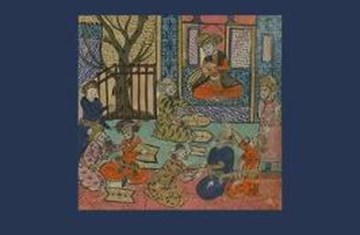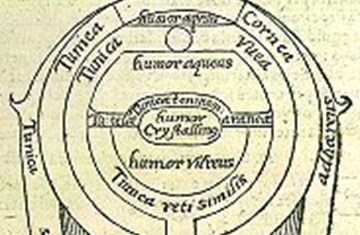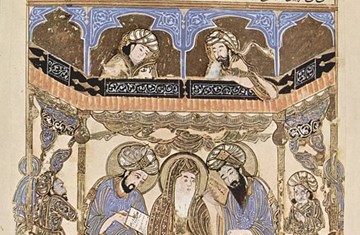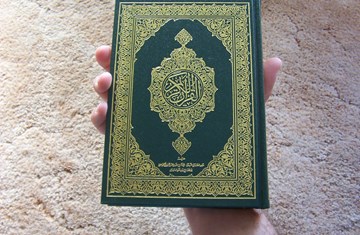The Institute of Ismaili Studies: Reflections on the first 25 Years

Reflections on the first 25 Years
From its modest beginnings in the late 1970s, The Institute of Ismaili Studies (IIS) has developed into a vibrant centre of learning, addressing not only the needs of the international Ismaili community, but also contributing to and participating in the contemporary debates of the Muslim world at large.
Over the last 25 years, the Institute has had much to celebrate: it has gained respect and credibility as an important voice in the larger field of Islamic Studies and has directly contributed to the formation and development of a generation of scholars, who in turn have made their mark on the intellectual and religious growth of the Ismaili community.
This is an adapted and edited version of an article first published in The Ismaili USA in March, 2004.
In April 1975, His Highness the Aga Khan chaired a four-day conference in which leaders of the Ismaili community and several Ismaili scholars engaged in the fields of Islamic Studies or related areas were brought together in Paris. This historic meeting had on its agenda many items that would have far-reaching consequences for the international Ismaili community. One of these was the establishment of an academic institution, international in scope, charged with carrying out research on religious and cultural issues pertaining to Islam and Ismailism. Among the important purposes of this research was that of assisting the Ismaili community to gain a more informed and discerning knowledge of their traditions and to equip them to address their concerns in a changing world.
Almost two and a half years later, in August 1977, The Institute of Ismaili Studies opened its first offices in a series of small suites in Central London. In addition to the Executive Officer and Board of Governors chaired by His Highness the Aga Khan, the Institute soon hired academic and support staff and began to tackle some of the themes that were raised at the Paris Conference.
By 1979, a library was established, gathering for safekeeping and preservation, manuscripts spread across the Jamat, in private collections as well as in local community libraries, in various parts of the world. Printed and audiovisual materials were also acquired, including both studies of the community as well as publications produced by the Ismaili community.
Today, the Institute's library contains one of the largest collections of Ismaili-related materials in the world. Supplemented by a large collection of materials in related disciplines, the library's holdings include over 25,000 items consisting of manuscripts, artefacts, printed materials and audiovisual resources.
Beginning in 1980, the first of several human resource development initiatives was launched by the Institute. The aims of these programmes were to provide interested and dedicated individuals with important skills, tools and perspectives in relevant fields, while at the same time creating resources for the Jamat in areas where there was a lack of relevant professional competencies. The programmes were also linked to graduate programmes in reputed universities, so that individuals would acquire the necessary academic credentials. In the first fifteen years, these programmes primarily concentrated on the development and training of teachers, curriculum developers and waezeen.
Since 1994, the Institute has been offering its Graduate Programme in Islamic Studies and Humanities. This course has attempted to relate the academic study of Islam to other disciplines in the social sciences and humanities, while at the same time exposing students to the critical skills necessary to engage with Islam, not simply as a faith, but also as one of the significant cultures and civilisations (among others) in the world. The programme was formulated to provide an alternative to conventional ways of studying Islam, building on the scholarly strategies of the approach to Islamic Studies in Western universities but seeking to surpass its limitations as well as those of traditional methodologies in the Muslim world.
To date, almost 200 Ismaili students have gone through the various programmes, and many have directly contributed to the intellectual foundations and programmes of the IIS, other Ismaili community institutions, as well as the Aga Khan Development Network - in addition to engaging with questions of the Muslim world at large in a broad spectrum of fields and at various institutions, academic and otherwise. The Institute has also supported and nurtured a number of doctoral students who will be able to provide the necessary intellectual support to the Ismaili community in the years ahead.
In tandem with the development of human resources, the Paris conference had stressed the need for a quality international curriculum to meet the religious education needs of the Jamat in modern times. This was realised in the publication of the Ta'lim curriculum, whose preschool component was first published in 1985. Today, the Ta'lim curriculum for primary education is available in nine languages and used by over 100,000 Ismaili children worldwide. The Institute is at present readying the materials for the secondary curriculum which will help to provide a strong grounding in the tariqah for Ismaili youth, underpinning their identity and their capacity to articulate it. The normative component will be an integral part, however, of broader dimensions of Islamic and humanistic knowledge and perspectives. An effective transmission of such knowledge requires professionally trained teachers with normative grounding as well as knowledge of secular humanistic and scientific disciplines. A programme to train a cadre of teacher-trainees for this purpose is currently in preparation.
Through its partnership with the Ismaili Tariqah and Religious Education Boards worldwide, a range of collaborative initiatives have been undertaken that are contributing to the religious formation of the Jamat. These include curriculum materials for international human resource development initiatives, also known as Vector Programmes, and numerous international workshops that focus on the contemporary needs of the global Jamat. One of the significant aims of these endeavours is to equip a core group of informed and dedicated individuals within the Jamat with the pedagogy, skills and knowledge that will help them articulate Islam, not as a monolithic entity but as a spectrum of interpretations and voices, and situate the Ismaili tariqah within this plurality of expressions. Through a cascading effect, these perspectives will eventually touch larger segments of the Jamat.
As early as 1983, the Institute began to publish scholarly monographs and translations to make available to academic institutions and the Jamat, contemporary research on different aspects of Islam, Shi'ism and the Ismaili community. Recognized as an important contributor to the debates of the Muslim world, the Institute has also begun to hold a series of high-profile conferences that look at the engagement of Muslims with the modern world. The proceedings of these are published by the Institute. To date, The IIS has published or supported more than 40 monographs, edited volumes and collection catalogues, and as a result has reinvigorated and given a credible and articulate voice to Shi'i and Ismaili Studies in academia.
The Institute also plays an important role in contributing intellectually to the contemporary endeavours of the Ismaili Imamat, such as the Aga Khan Development Network and other institutions. By doing so, it is able to share perspectives that underpin these institutional initiatives to realise the social conscience of Islam.
To meet the changing needs of the Jamat and the new realities of the Muslim world, the Institute has also embarked on several new initiatives over the past few years. The first of these is the formation of a Central Asian Studies Unit (CASU), which supports, builds upon and complements the work of Project Tajikistan, originally set up in 1995, after the collapse of the Soviet Union. CASU's mandate is to explore and commission scholarship on Islam in Central Asia - an area defined to include the former Soviet republics, northern Pakistan, Afghanistan, Western China and Iran - and to develop capacity for relevant research and scholarship amongst Central Asian societies. With a Jamat that is truly global, this new unit will help shed light on the history and practices of the Ismaili communities of these regions.
The Institute has also formed a Qur'anic Studies Unit to explore the plurality of interpretations given to the Qur'an and its diverse negotiations in Muslim societies. As part of its 25th anniversary celebrations, the IIS convened a 3-day international colloquium on the Qur'an and its expression in the arts. The Qur'anic Studies Unit has also embarked on an ambitious new publication series with Oxford University Press, which is being launched in 2004.
In the changing landscape of the Muslim world, The Institute of Ismaili Studies will have an even more important role to play in the years ahead. Twenty-five years ago, it would have been difficult to predict the type of world we live in today. The emphasis and responsibility that is placed upon Muslims in the contemporary world; the geographic dispersion of the Jamat and oscillating political and social realities have necessitated an institution that is increasingly capable of addressing new and emerging challenges creatively and intelligently. The Institute of Ismaili Studies, under the guidance of Mawlana Hazar Imam, will continue to adapt to address the needs of the Jamat and the Muslim umma in the years ahead.










